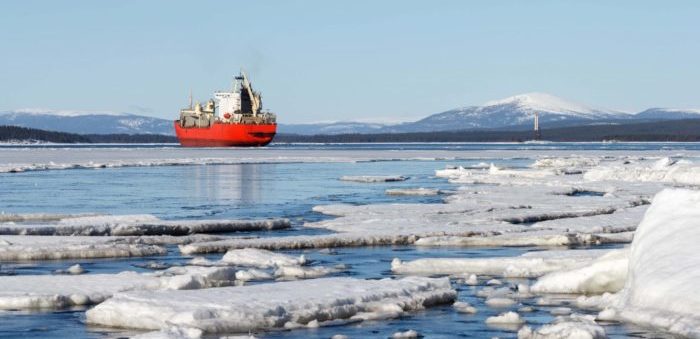‘Safe maritime operations under extreme conditions: the Arctic’ (SEDNA) is a research project that is developing an innovative and integrated risk-based approach to safe Arctic navigation, ship design and operation. SEDNA has a global consortium, with 13 partners from 6 different countries, including China. It has already been launched since June 2017 and it is expected to be completed in May 2020.
The ice in the Arctic region retreats due to global warming. As a result, new maritime routes have been plotted to the global shipping maps. More and more vessels navigating through Arctic waters are not manned by bridge teams with much, if any, Arctic navigation experience. Arctic navigation is a highly specialised and complex activity that demands special skillset from bridge crew to be safe. Inexperienced bridge teams without Arctic specific knowledge and training significantly increase the risk profile for vessels operating in the Arctic.
[smlsubform prepend=”GET THE SAFETY4SEA IN YOUR INBOX!” showname=false emailtxt=”” emailholder=”Enter your email address” showsubmit=true submittxt=”Submit” jsthanks=false thankyou=”Thank you for subscribing to our mailing list”]
SEDNA is addressing these challenges by proposing and testing innovative technologies and methods to improve navigation and traffic management, operational safety, ship design, fuel stability, and anti-icing coatings.
Namely, the project team is developing a human-centered approach to improve the ability and skills of the ship’s bridge crew, especially those with little or no Arctic experience, to navigate safely through the region. The approach incorporates features as augmented reality technology (AR) and better information management.
These will be integrated with SEDNA’s voyage planning system, which combines ice monitoring and weather forecasting using big data and data management techniques. The team aims to improve the crew’s awareness of the Arctic’s changing conditions as they navigate and help them make the correct decisions as they chart a safe, efficient course through the icy waters.
The project will also develop anti-icing engineering solutions to reduce ice formation, which can have a huge impact on a ship’s stability, safety equipment and on-board safety. The team will produce prototypes of anti-icing coatings and test them in the field.
The team will also deliver new design guidelines for the construction of ships suited for Arctic routes. These will also cover the adaption of existing vessels to better withstand Arctic conditions.
They will also conduct safety assessments of low-flash point fuels and conventional fossil fuels and their potential impacts on the Arctic environment, vessels and crews due to accidents.
The assessment includes the drafting of a European Committee for Standardization (CEN) Workshop Agreement with technical provisions, safety risks, and guidance for the bunkering of methanol when refueling from a truck, shore facility or another ship during an Arctic voyage.
The total costs of the project will be over 6.5 million euros and the participant nations are UK, as the coordinator, Sweden, Norway, Ireland, Finland and China.

































































